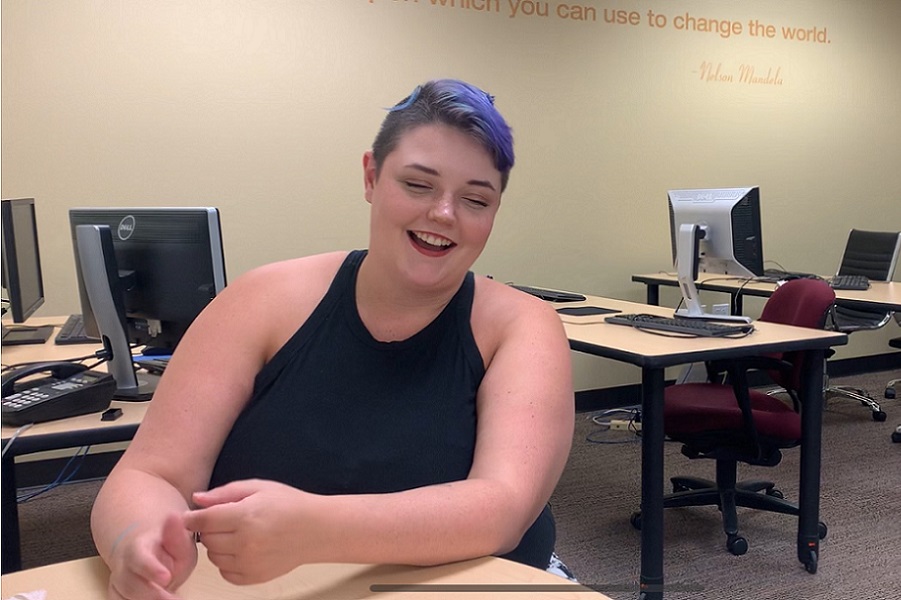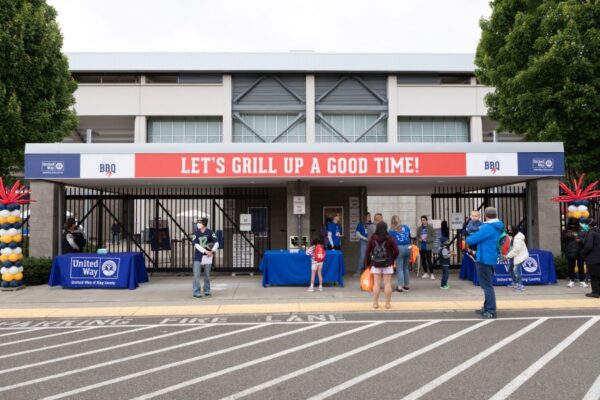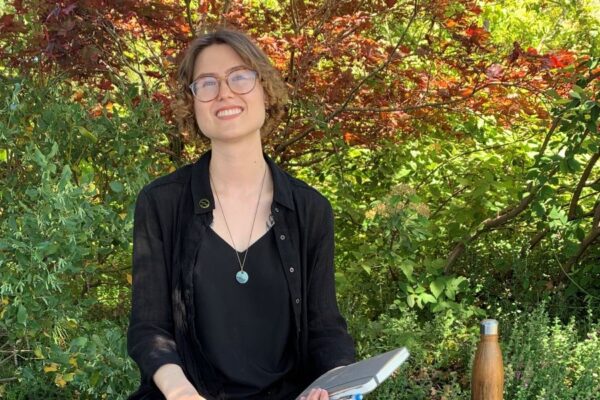AmeriCorps Stories: A Q&A With Former Member Fae Raitt
AmeriCorps is a national program that connects individuals and organizations to help communities tackle their toughest challenges. At United Way of King County, AmeriCorps members work up to 12-month terms on projects that include ending homelessness, increasing food security and helping students graduate in King County. Members gain an expanded network of connections and learn valuable experience that often leads to employment after the project end—all while earning trust and gratitude from the communities they serve.
We urge you to apply to AmeriCorps to join our awesome team of young people working to make a difference. This year, we are also excited to offer the highest possible living stipend for our county, a monthly $250 housing stipend, an additional $1,000 completion bonus for members who complete a full term of service, and access to an emergency financial assistance program to mitigate any unforeseen financial hardships that might happen during the service term.
Want to know more? We’ve asked Fae Raitt, United Way food security specialist and former AmeriCorps member, to share their insights about the program.
United Way of King County: When was the first time you heard about AmeriCorps?
Fae Raitt: I had known about Peace Corps and thought about doing Peace Corps when I was younger, but none of the things that I had gone into had really applied to Peace Corps. But AmeriCorps was something I was qualified for and something I wanted to do—I found the position on Indeed. I had been looking for work-from-home jobs because I was a school bus driver when COVID happened, and there was no one to be driving to school. So, I found the AmeriCorps program, and I was reading through it, and I was like “Oh, this is exactly the kind of work I’m wanting to do.”
United Way of King County: Why did you decide to apply?
Fae Raitt: It was actually a program I had wanted to start in Pierce County, which is where I was living. All of the school bus drivers were out of work and they wanted a job, and they wanted to do something. I thought, there’s a lot of people right now that are disabled, that can’t go to grocery stores—what if we set up a grocery delivery service that’s free to use? For people who use food banks, why don’t we have school bus drivers going and picking up the food and driving to the neighborhood and dropping them off? But I couldn’t get it through to the local representatives.
So, when I saw this job offering, which was so similar, I had to do it. So, I was very excited when I got in because it was getting food from the food bank to the people who need it by partnering with DoorDash. The United Way Home Grocery program was started in response to COVID, but it’s one of those things that should have been going long before, because people with disabilities have been around forever. And going to food banks has always been a risk for people who are immunocompromised, or it’s always been inaccessible to people who are wheelchair users or who might be incapable of leaving their homes in a safe manner without assistance.
United Way of King County: What did your position entail?
Fae Raitt: I was an emergency food system coordinator, and then I came on full time with United Way, so now I’m a food security specialist. We’ve partnered with specific food banks within King County, and we worked with DoorDash to create a client list and delivery windows so that DoorDash could assign Dashers to go pick up the food and then drop it off to the individual clients. So, this was going door to door and dropping food off with a list of client names for food banks that serve those specific areas. For example, Federal Way Food Bank only serves people within the Federal Way School District.
So, you have to think, is this person in Federal Way actually in Federal Way School District? It was a lot of looking at all of these small things. Like if this client has moved, are they in range of any of these food banks? And if they are, then we could give them the opportunity to switch to another food bank.
We’ve helped a lot of people who are homebound have access to food that is affordable and nutritionally dense, and food that in some cases is lifesaving.
Fae Raitt, United Way of King County food service specialist and former AmeriCorps member
United Way of King County: What are some of the impacts that you saw your work making in the community?
Fae Raitt: We’ve helped a lot of people who are homebound have access to food that is affordable and nutritionally dense, and food that in some cases is lifesaving. There are two clients in particular who live together, and they have a lot of dietary restrictions due to medical conditions. They’re homebound and can’t leave because they’re immunocompromised, so they can’t get to the food bank. So, we needed to find a way to work with them and with the food banks to provide them with food that they could eat without causing problems. It’s a lot of trying to make changes for people who are often forgotten or left behind. Another big thing is that we started doing culturally relevant boxes in this past year.
So, for example, I’m Polynesian, and if I were to go and get one of the regular boxes, there’s a lot of food in there that I won’t eat or food that doesn’t work for my house. We eat a lot of dumplings and rice—almost an absurd amount. But we’ve worked with Cascadia Produce to make sure that people like me can have access to food that they’d actually eat. That makes a big difference for some people—being able to not only access food that they can eat but accessing food that they actually want to eat.
United Way of King County: What have you learned and gained from this experience?
Fae Raitt: I think the biggest thing I’ve learned is about the demographics of King County. I did not know exactly how many other Islanders lived inside of King County, and I hadn’t the slightest idea what the largest cultural makeups were until we started doing this program. So, it’s been very interesting for me because I am not a really socializing person. It’s just cool to see where these large concentrations of community are, and to see what these specific communities need. Because we get people reaching out to us asking us for other things. We have to ask ourselves: Do we need to be expanding our programs so that they’re working for other needs? So that’s a big thing I’ve learned, is just how diverse King County is.
United Way of King County: What’s next for you?
Fae Raitt: Right now, I’m working on some independent projects for the program, and also working on independent development of games. But I want to continue working on this program for as long as I can, for as long as we’re doing the program, and as long as the program will have me. Because this is something I’m very passionate about, something that means a lot to me.
United Way of King County: If someone was thinking about doing AmeriCorps, what would you tell them?
Fae Raitt: That it’s a really rewarding experience—maybe not fiscally, but emotionally and mentally; it is where I’ve met some of the best people I’ve ever known in my life. I’ve had the opportunity to make some actual change, which was something I wasn’t able to do in politics.





Comments